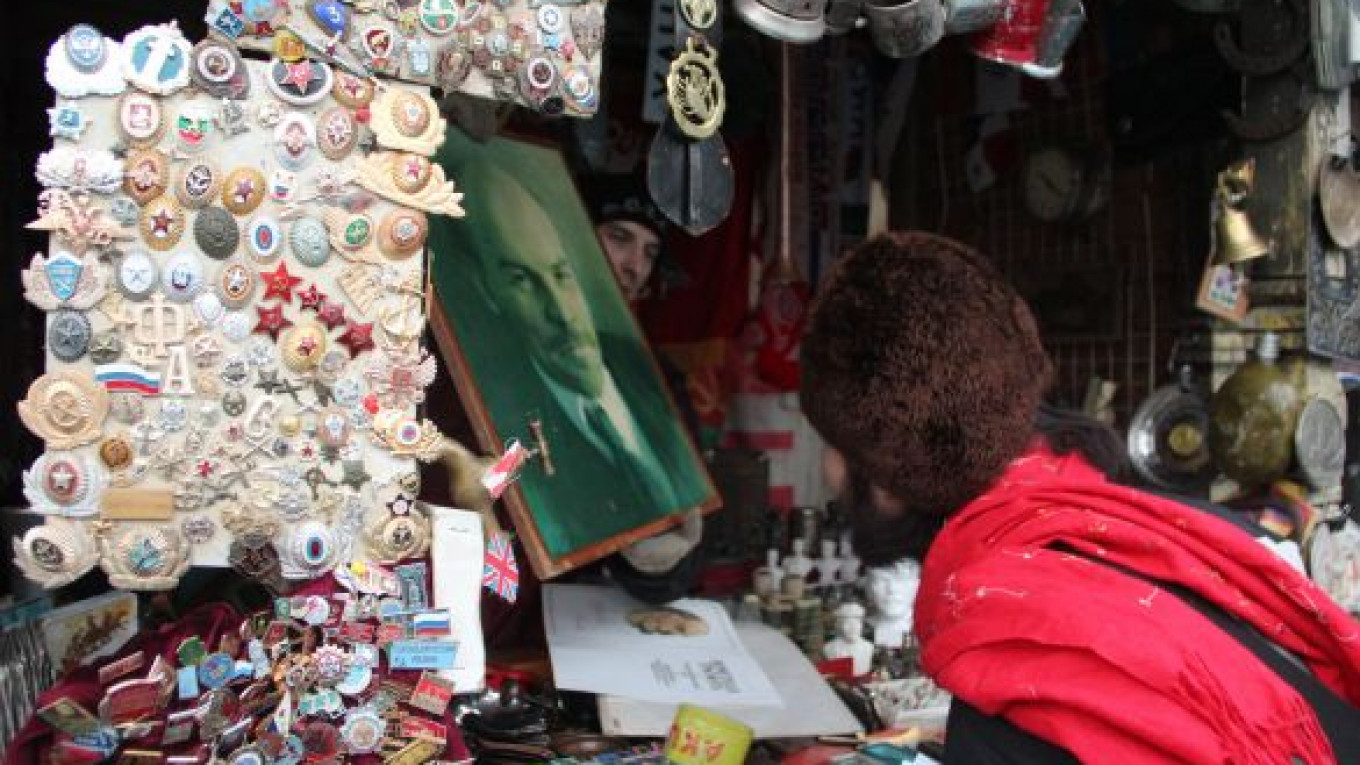Japanese artist Yoshinori Niwa came to Moscow in search of Lenin and found him. Not the Lenin statues on squares or Lenin images on street signs, but the private Lenin that people still have in their homes.
More than two decades after the end of the Soviet Union, Niwa explores Russians and his own relationship to the man in an exhibit at the Moscow Museum of Modern Art that is part of a show called "Double Vision: Contemporary Art From Japan."
"The image of Lenin is closely connected to the image of Russia. For foreigners, it has the same kind of resonance as Red Square and matryoshka dolls," said Karina Abdusalamova, a spokesperson for the museum.
A performance artist, Niwa's show is made up of a video of him visiting the apartments where Lenin, the man who led the October Revolution and who for decades was honored in books, universities, money and even mountains but seems irrelevant to many today, still lives.
Last January, Niwa put small ads in local media and distributed flyers looking for people who still had something Lenin-related in their apartments and who would allow him to come and film and catalogue the objects.
In the video, Niwa is shown stopping people in the Moscow metro and asking whether they have any memories or objects connected to the Bolshevik leader and whether he can go see the objects in people's homes. Most people are obliging, telling him stories about their lives. One woman says "We worshipped Lenin like he was a God," before adding that "The real Lenin was not actually how we used to think of him."
Some tell of Lenin as a figure that is connected to their childhood and a strong note of nostalgia comes through.
Abdusalamova added controversially that "for Russian people, Lenin is not simply part of history, but a delightful revolutionary story. The story still excites people, still makes them wonder."
The exhibit also features some of the objects that Niwa found, such as Komsomol membership cards and old editions of the satirical magazine Krokodil.
The video is shot in a shaky-cam style, so the viewer feels as if he is following Niwa as he goes into and out of flats as he finds and explores the leftover Lenin.
At one point in the film, Niwa talks to a Lenin look-alike near Red Square, who shows him a document that certifies that he is sane. The look-alike got the document after police stopped him a number of times thinking he was mad.
"The Search for Lenin" runs till May 6. Moscow Museum of Modern Art. 17 Yermolayevsky Pereulok. Tel. 231-4405.
A Message from The Moscow Times:
Dear readers,
We are facing unprecedented challenges. Russia's Prosecutor General's Office has designated The Moscow Times as an "undesirable" organization, criminalizing our work and putting our staff at risk of prosecution. This follows our earlier unjust labeling as a "foreign agent."
These actions are direct attempts to silence independent journalism in Russia. The authorities claim our work "discredits the decisions of the Russian leadership." We see things differently: we strive to provide accurate, unbiased reporting on Russia.
We, the journalists of The Moscow Times, refuse to be silenced. But to continue our work, we need your help.
Your support, no matter how small, makes a world of difference. If you can, please support us monthly starting from just $2. It's quick to set up, and every contribution makes a significant impact.
By supporting The Moscow Times, you're defending open, independent journalism in the face of repression. Thank you for standing with us.
Remind me later.






